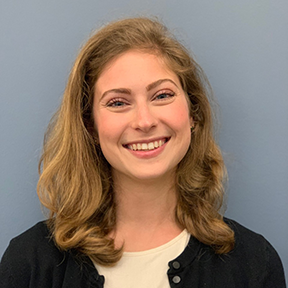Featured Student

Dale M. Golden
Dale Golden is a present fourth year student in University of Alaska Anchorage’s clinical-community psychology doctoral program. She was born and raised in downtown Chicago, IL and received her undergraduate degree in Trauma Psychology from The College of William and Mary in Virginia. Her undergraduate coursework included classes in Sociology, Anthropology, International Relations, Government, and Philosophy as well as Psychology to not only understand the effects of trauma but how traumatic situations can be brought about and occur in society. During her undergraduate years, Dale studied abroad in Jerusalem, Israel which had a profound impact on her academic and career trajectory as she became interested in understanding the sociopolitical and cultural dynamics that influence long-term oppression and trauma. After finishing her undergraduate studies, Dale worked in international education, sales, and was a case manager at an inpatient mental health facility. Presently, she is the instructor for UAA’s statistics in psychology lab course, works at a private practice as a neuropsychological assessment psychometrist, and is the newest behavioral health extern at Anchorage Neighborhood Health Center. Outside of academia, she enjoys traveling (and has been to 30 countries!), acroyoga, country dancing/dancing in general, singing karaoke, hiking, and spending physical/virtual time with her family, friends, and pets.
Presently, Dale is conducting research regarding Latinx immigrants’ immigration status as variables in the relation between state-level immigration policy and psychological sense of community. Dale is also part of a team developing the early stages of a needs assessment for Syrian refugees and mental health workers in Northeast Syria. She previously conducted a program evaluation with one of Anchorage’s Jewish synagogues to assess communication needs between members and leadership. Dale’s prior work experience, undergraduate interests, and current projects inform her knowledge that trauma and the experience of trauma significantly varies based on context, yet many of the programs and treatment modalities we presently have offer only Western-based methods and diagnostic criteria. As a result, Dale’s future goals include developing a framework for cross-culturally-appropriate community-based trauma interventions that incorporate protocols for recognizing and valuing the various contexts that these interventions may take place. She hopes to one day work for an international organization where she can work with researchers and clinicians to implement this framework, test its efficacy, continue revising it, and ultimately lobby for its use to governments and intergovernmental organizations.
